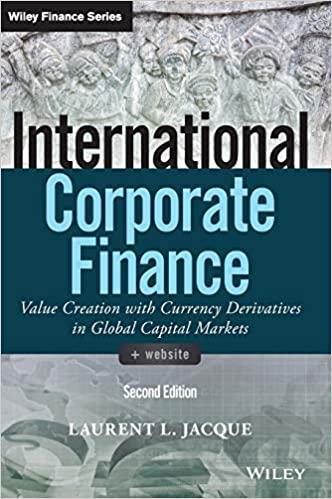R.J. Reynolds is considering a 25-billion yen debenture to be issued at 101. 50 percent of par.
Question:
R.J. Reynolds is considering a 25-billion yen debenture to be issued at 101. 50 percent of par. The five-year, annual coupon bond would pay an interest rate of 73∕4 percent denominated in yen, but the principal would be repaid in dollars, rather than yen, in the amount of $111.956 million.
a. What are the yields to maturity from the perspectives of the issuer, a U.S.-
based pension fund, and a Japanese insurance company that is considering the dual-currency bond as a possible investment? At the time of issue, the spot exchange rate stood at 136. 90 yen = $1. Five-year forward contracts were also available at 97. 60 yen (bid)–102.70 yen (offer) per dollar.
b. Should R.J. Reynolds prefer a straight $100 million Eurobond issued at 100. 125 percent of par that pays an annual coupon of 10. 125 percent and is redeemable at par?
c. Alternatively, R.J. Reynolds could issue 25 billion yen worth of Eurobonds at 100. 25 percent of par with a 6. 375 percent coupon. This bond is also redeemable at par. Under what exchange rate scenario would you recommend this last option to R.J. Reynolds? Note: All three debentures carry up-front fees of 1. 875 percent of par.
Step by Step Answer:

International Corporate Finance Value Creation With Currency Derivatives In Global Capital Markets
ISBN: 9781119550464
2nd Edition
Authors: Laurent L. Jacque





